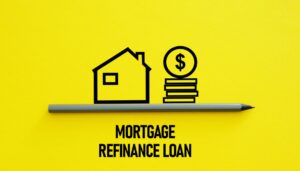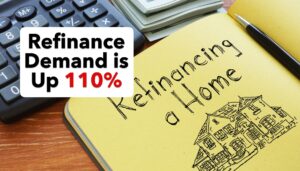This is excellent news for anyone thinking about buying a home or looking to lower their monthly housing costs: on this final day of 2025, Tuesday, December 31st, mortgage rates have seen a significant drop. The national average for a 30-year fixed refinance rate has landed at 6.38%, a welcoming decrease of 26 basis points from the previous week. This isn't just a minor blip; it's a strong signal that borrowing costs are moving in a more favorable direction, offering potential relief and new opportunities for homeowners and buyers alike as we head into 2026.
Mortgage Rates Today, Dec 31: 30-Year Refinance Rate Drops by 26 Basis Points
Breaking Down Today's Mortgage Rate Movement
According to the latest data from Zillow, released on Wednesday, December 31, 2025, here's a snapshot of what rates look like today:
- 30-year fixed refinance rate: 6.38% (This is down 26 basis points from last week's 6.64% and also down 22 basis points from yesterday's 6.60%.)
- 15-year fixed refinance rate: 5.49% (This rate has fallen 11 basis points from 5.60%.)
- 5-year ARM refinance rate: 7.12% (This rate has remained unchanged in this reporting period.)
The 30-year fixed refinance rate is often the one most people are watching. Seeing it fall by more than a quarter of a percentage point in just seven days is a pretty big deal. While it’s still higher than the incredibly low rates we saw back in 2020 and 2021, this downward trend suggests we might be moving into a more comfortable phase for borrowers after the Federal Reserve’s aggressive rate hikes.
Why Are Mortgage Rates Taking a Dive Now?
To really understand this shift, we have to look beyond just the housing market itself and consider the bigger economic picture. Several key factors are at play:
- Inflation is Finally Cooling Down: For the past few years, the Federal Reserve's main mission has been to fight inflation, and that's been the biggest driver of rising mortgage rates. But now, the numbers are looking much better. Recent reports on inflation (like the Consumer Price Index) show that prices are settling down, getting closer to the Fed’s target of 2%. This is happening for a few reasons, like energy prices stabilizing, supply chains improving, and wage growth slowing a bit. When inflation calms down, the Fed usually starts to ease up on interest rates. This makes the bond market, especially the 10-year Treasury yield, which is super important for long-term mortgage rates, look more attractive. As those yields go down, mortgage rates tend to follow.
- The Economy is Showing Signs of Slowing: Recent economic reports indicate that the U.S. economy might be cooling off a bit more than we initially expected. While unemployment is still low, job growth isn't as rapid as it was, and people are starting to spend a little less. When the economy slows down, the Fed often lowers interest rates to encourage spending and investment. This is another reason why mortgage rates are heading lower.
- Investor Confidence is Shifting: The market for mortgage-backed securities (MBS) is also reacting positively. With a better outlook on inflation, investors are looking to put their money into these securities again. Increased demand for MBS means it's cheaper for lenders to borrow money, and they often pass those savings on to consumers in the form of lower mortgage rates.
What This Means for You as a Homeowner
If you bought or refinanced a home during those higher-rate periods of 2022 to 2024, when rates sometimes went above 7% or even 8%, this drop to 6.38% could be a game-changer.
Refinancing Opportunities Are Back
Let's look at a real-world example. Imagine you have a $400,000 mortgage with an interest rate of 7.5%. Your monthly principal and interest payment is around $2,800. If you could refinance that mortgage to the current rate of 6.38%, your payment would drop to roughly $2,500. That's a saving of $300 per month, which adds up to $3,600 per year. Over the entire life of the loan, that could mean saving well over $100,000 in interest alone.
Of course, you always have to consider the costs associated with refinancing, which typically range from 2% to 5% of the loan amount. However, if you have good credit and at least 20% equity in your home, the numbers are starting to look very attractive. The old rule of thumb – “refinance if you can lower your rate by at least 0.5%” – is something many homeowners can now consider.
Shorter-Term Options Also Shine
The 15-year fixed refinance rate at 5.49% is especially appealing if you’re looking to pay off your home faster. While the monthly payments will be higher because you’re paying off the loan in half the time, the total amount of interest you’ll pay over the life of the loan will be significantly less. This could be a smart move for those who are financially disciplined or empty nesters looking to be mortgage-free sooner.
The 5-year ARM at 7.12% is a different story. With fixed rates falling, adjustable-rate mortgages don't offer as much of a benefit right now, unless you're absolutely sure you'll sell or refinance again before the rate starts to adjust.
Should You Jump on This Now, or Play the Waiting Game?
This is the big question on everyone's mind, isn't it? While today's rate decrease is certainly something to celebrate, many experts believe rates could continue to fall in 2026. Major financial institutions like Goldman Sachs and J.P. Morgan, along with the Mortgage Bankers Association, have revised their forecasts. They're predicting that by the end of 2026, the 30-year fixed rate could be somewhere between 5.75% and 6.00%. If you believe these predictions, waiting might get you an even better deal.
However, trying to perfectly time the market is incredibly tricky. Mortgage rates can be influenced by unexpected events – think geopolitical issues, sudden spikes in oil prices, or a surprise jump in inflation. Any of these could quickly reverse this positive trend. If your current mortgage rate is above 7%, the savings you can achieve by refinancing now might be more valuable than the potential benefit of waiting for an additional 0.25% or 0.50% drop.
Recommended Read:
30-Year Fixed Refinance Rate Trends – December 30, 2025
A Symbolic End to a Tough Time
December 31, 2025, feels more like a milestone than just another day on the calendar. After experiencing some of the most rapid and significant interest rate hikes in recent memory, borrowers are finally starting to see some relief. This 26-basis-point drop isn't just a number; it's a sign that the housing market might be finding its footing again.
For first-time homebuyers who were priced out by high rates, even a small decrease in mortgage costs can make homeownership feel a little more achievable, even if home prices are still high. For existing homeowners, it’s a chance to lighten the financial load each month or get rid of their mortgage faster. And for the economy as a whole, lower mortgage rates can help boost sales, encourage new home construction, and generally improve consumer confidence.
Key Market Insights and Trends:
- 2025 Yearly Lows: Freddie Mac reported that the 30-year fixed-rate mortgage finished 2025 at an average of 6.15%, a notable improvement from its peak of 7.04% earlier in the year.
- Refinance Activity is Soaring: Applications for refinancing have surged significantly. The Mortgage Bankers Association’s index saw an 86% year-over-year increase as rates moved closer to the low 6% range.
- Cash-Out Refinance Costs: These types of refinances, where you borrow more than you owe on your current mortgage, are still a bit more expensive. They typically range between 6.5% and 6.75%.
- The “Lock-In” Effect: A large majority of homeowners, about 82.8% of them, currently have mortgage rates below 6%. This means that for many, refinancing at today's rates might not offer substantial enough savings to make it worthwhile.
Looking Ahead to 2026
As we kick off the new year, all eyes will be on the Federal Reserve's first meeting of 2026 and the initial inflation reports. If inflation continues to stay in check and the job market cools down smoothly, we could see mortgage rates continue their downward journey.
However, it’s important to be realistic. We are unlikely to return to the extremely low rates we saw during the pandemic. The era of “free money” is behind us. But, we might be entering a new phase of moderate, stable, and gradually declining rates. This could help bring a sense of balance back to the U.S. housing market.
For now, on this last day of 2025, it’s a good time for homeowners to take a breath and acknowledge this welcome bit of positive news. The tide might just be turning.
“Invest Smart — Build Long-Term Wealth Through Real Estate”
Norada's team can guide you through current market dynamics and help you position your investments wisely—whether you're looking to reduce rates, pull out equity, or expand your portfolio.
Work with us to identify proven, cash-flowing markets and diversify your portfolio while borrowing costs remain favorable.
HOT NEW TURNKEY DEALS JUST LISTED!
Speak with a seasoned Norada investment counselor today (No Obligation):
(800) 611-3060
Recommended Read:
- When You Refinance a Mortgage Do the 30 Years Start Over?
- Should You Refinance as Mortgage Rates Reach Lowest Level in Over a Year?
- NAR Predicts 6% Mortgage Rates in 2025 Will Boost Housing Market
- Mortgage Rates Predictions for 2025: Expert Forecast
- Half of Recent Home Buyers Got Mortgage Rates Below 5%
- Mortgage Rates Need to Drop by 2% Before Buying Spree Begins
- Will Mortgage Rates Ever Be 3% Again: Future Outlook
- Mortgage Rates Predictions for Next 2 Years
- Mortgage Rate Predictions for Next 5 Years
- Mortgage Rate Predictions for 2025: Expert Forecast



